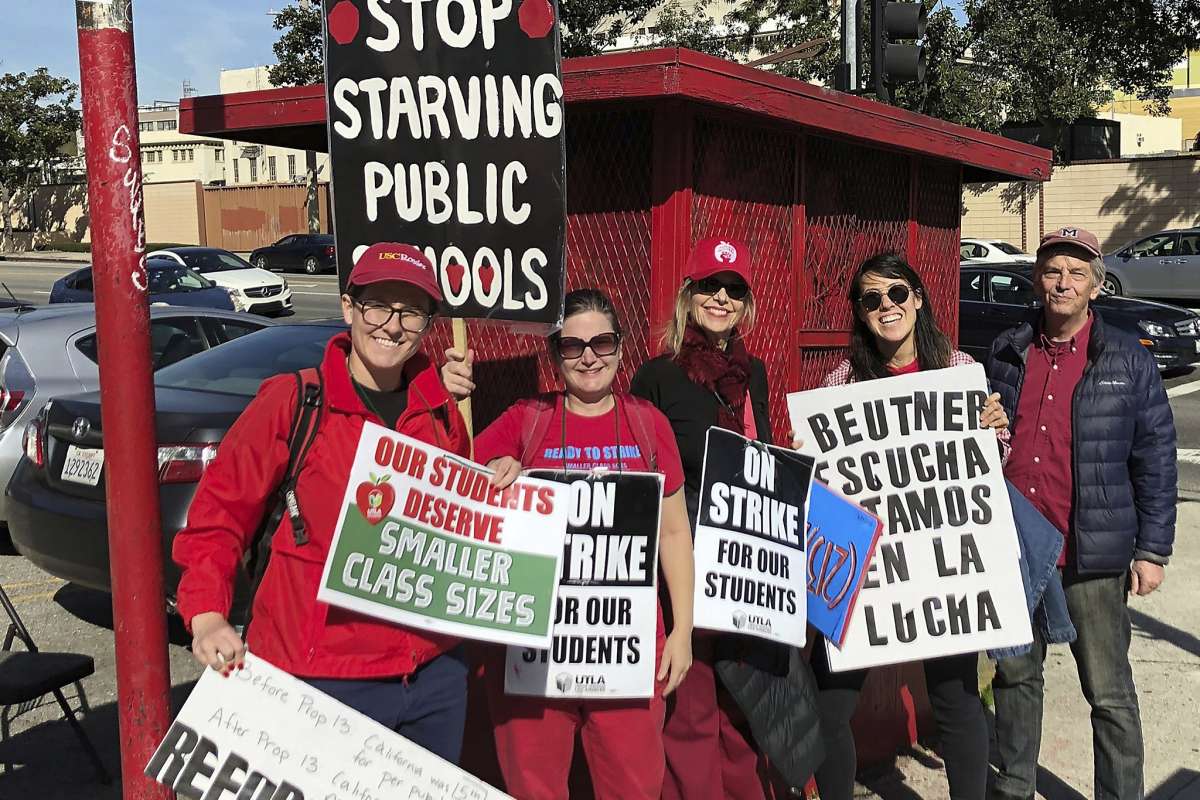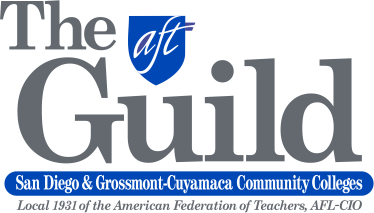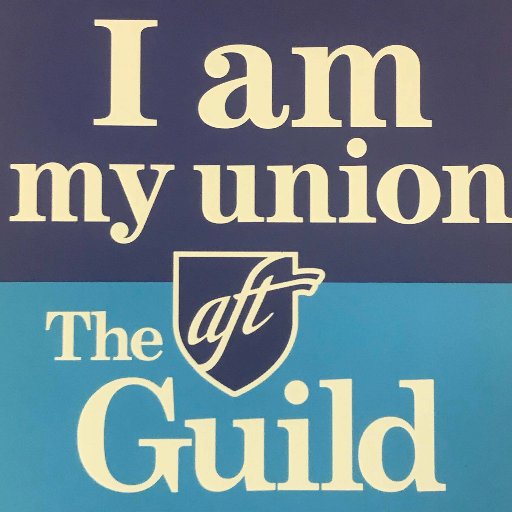By Fred Glass

Marianne O’Brien, second from right, and her fellow teachers pose in downtown Los Angeles after rallying at City Hall, Tuesday, Jan. 22, 2019. A tentative deal between Los Angeles school officials and the teachers union will allow educators to return to classrooms after a six-day strike in the nation’s second-largest district. O’Brien said… Photo: Christopher Weber / Associated Press
A weeklong strike of Los Angeles teachers is about to end. Oakland teachers are preparing to strike. Their goals are remarkably similar and simple: a wage that allows them to live somewhere within reasonable commuting distance from the schools in which they work, and the resources to enable them to do their jobs and deliver the education their students deserve.
Over the last year, this country has seen the most person-hours by far lost to work stoppages in many decades, entirely thanks to gigantic statewide general strikes of public education in West Virginia, Oklahoma and Arizona, and smaller but still widespread walkouts in other states.
Last year, with strikes occurring in red states, the question was: Why strikes in these states, where unions are relatively weak? And, until the strikes spread to California, the answers most readily offered were: (1) in these places, the school systems had been pushed to the breaking point after years of conservative demonization of public services and consequent budget cuts, and (2) young teachers used social media to communicate, where in the past unions might have rallied members.
In California, where education unions remain a bastion of organized labor strength, and Democratic politicians offer at least lip service to public education and unions alike, there are clear differences from the other states, but also some similarities. The big one is simple: Even though the state’s voters passed a progressive tax in 2012, Proposition 30, and a 12-year extension in 2016, which raised billions of dollars of state revenues from higher marginal tax rates on the rich, this seeming windfall mostly backfills education funding lost during the budget cuts of the Great Recession.
Last week, as I listened to the speakers and surveyed the thousands-strong rally in downtown Oakland in solidarity with teachers in both cities, another similarity came into focus: A new dynamic is unfolding.
As fewer young people enroll in teacher-training programs, the ones who do understand what they are getting into: a commitment not only to the traditional ideals of public education, but to the activist political work necessary in these times to make it happen.
They know that schools are the center of community life, to the extent we still have any such thing amid our cell phones and car culture, which separate us at least as much as they connect us.
These striking teachers know that public education remains a place where people come together in person — students, teachers and support workers, and parents — to generate and renew our society by preparing children to participate in the workplace and our democracy.
You don’t get strikes of this scale, with this level of public support and this frequency, without a clear understanding by the rank and file of what is at stake. Unlike a decade ago, when we had an aging teacher workforce, these teachers are younger, more politicized and ready to fight for what they believe in. Saddled with college debt and deteriorating economic prospects, they are nonetheless energized by the broad political mobilization occurring in the resistance to Trumpism. More of them call themselves socialists than we have seen since the 1930s.
This is good news.
Despite the Janus decision handed down by the U.S. Supreme Court last year, which said public employees were no longer required to pay a fair-share fee to their bargaining agent for representing their interests in negotiations, teachers are sticking by their unions. They are calling for reform of Proposition 13 (signs and buttons and speeches proclaiming this goal are everywhere in Oakland and Los Angeles); and a measure will be on the November 2020 statewide ballot to remove the loophole enabling large and unprecedentedly wealthy corporations to withhold billions of property tax dollars each year from schools and public services.
At a time when our nation’s top leaders are flagrantly cynical about democracy, the people who do the work to continuously repair and maintain our democracy are saying something different. They say: “Give us the resources to educate our students, and we will give you a better future.”
They are right.
Fred Glass is the retired communications director of the California Federation of Teachers, and author of “From Mission to Microchip: A History of the California Labor Movement” (2016, UC Press).






0 Comments